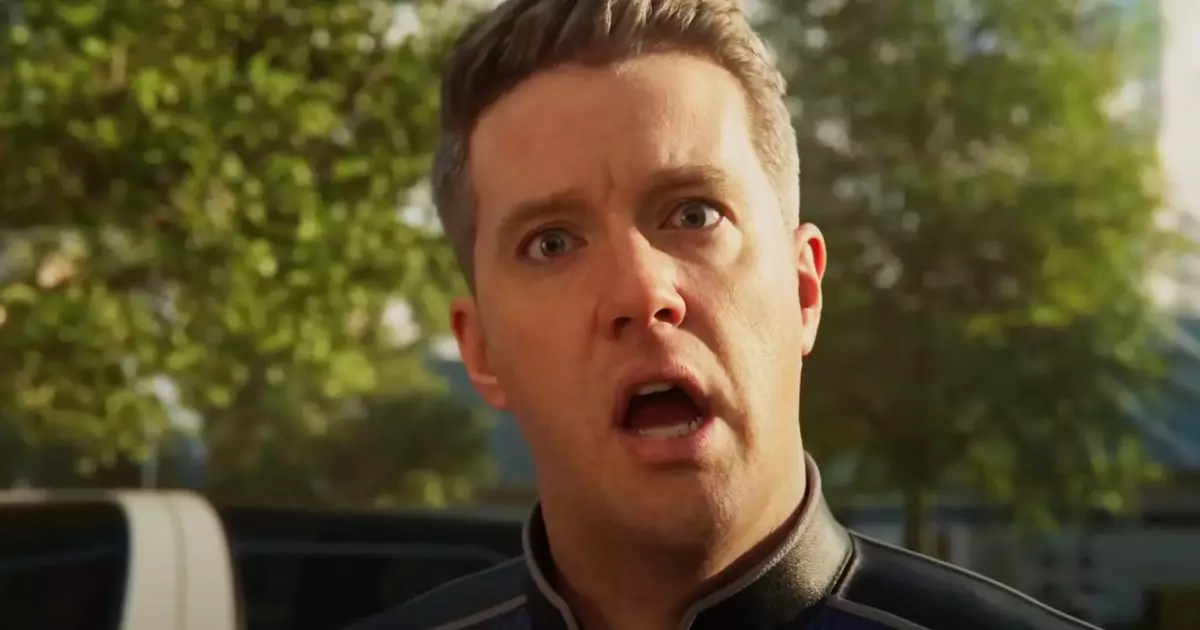Helldivers 2 isn’t just a shooter; it’s a mirror held up against our own descent into chaos and the overreach of authority. Beneath its pixelated chaos lies a reflection of societal fears, where survival depends on relentless violence and mass extermination. The game’s latest directives aren’t soft requests—they are brutal mandates that submerge players into a hyper-violent reality, emphasizing the idea that the only path to restoring hope is through brutality. Unlike traditional video games that offer escapism or heroism, Helldivers 2 aggressively reminds us that in the face of existential crisis, the solution is often unchecked force.
This shift toward violence as a means of salvation raises uncomfortable questions about how modern societies perceive security. When governments or institutions declare that a certain level of destruction and chaos is necessary for stability, we inch toward dangerous territory. Helldivers 2, in its satire, becomes a grim allegory for contemporary geopolitics, where civil liberties are sacrificed at the altar of “security.” The game’s tone, laden with sarcastic undertones, condones a disturbing philosophy: victory demands mass killing, and citizens’ fears justify extreme measures. It’s a gritty, unsettling universe that forces players to confront their own moral boundaries—if they are willing to.
The Strategically Excessive Kill Orders: A Reflection of Overreach
The latest mission prompts players to obliterate millions of enemies—shriekers, impalers, factory striders, and Leviathans—making the task colossal in scope and questionable in morality. The sheer volume of enemies to be slain underscores an obsession with numbers over nuance. Such demands create a paradox: The more enemies killed, the more “restoration” of democracy supposedly achieved. But at what cost? The destruction isn’t just physical—it’s psychological and societal, reflected in the game’s narrative that citizens are gripped by fear, images of destruction broadcast globally, and the fabric of public trust frayed to the brink.
This approach exposes a core critique of militaristic solutions to societal problems. When the game’s developers, Arrowhead, frame this military campaign as a response to citizens’ fears, they highlight how governments often weaponize insecurity to justify collective violence. It’s a reflection of how fear can be exploited to endorse policies that escalate conflict rather than resolving underlying issues. Helldivers 2, by doubling down on massive extermination orders, echoes real-world tendencies to view confrontation as the only viable option, further emphasizing that in such a brutal universe, morality is often a trivial detail.
The Satirical Direction: A Cynical Commentary on Power and Propaganda
What truly distinguishes Helldivers 2 from other shooters is its biting satire. The game doesn’t merely simulate warfare; it mocks the very machinery behind it. The official orders—complete with names like Fort Union, Fort Sanctuary, and Emeria—sound hollow and generic amidst the chaos, symbolic of how power often cloaks itself in banal language. This satirical veneer aims to criticize how political narratives trivialize violence, turning it into a task list for players, akin to state propaganda masquerading as necessity.
Moreover, the inclusion of the “Ingress-81” cape, a reward for participating in an alternate reality game, subtly hints at the game’s layered commentary on conspiracy, technology, and manipulation. The ARG, which helped set the stage for future invasions, mirrors real-world government projects or clandestine operations that operate in the shadows. By awarding players with a seemingly trivial cosmetic item bearing cryptic patterns (“DCON DCON”), the game invites us to think critically about how information is codified, hidden, and weaponized—an allegory for widespread misinformation campaigns.
The Moral Ambiguity in a World of Chaos
Helldivers 2 pushes players into a morally ambiguous universe where destruction is framed as the only option. The line between hero and villain blurs as the game insists that mass murder is necessary for societal salvation. It actively questions the morality of such logic, subtly urging players to consider whether their actions are justified or are merely actions taken under duress, manipulated by higher powers.
The emphasis on killing metrics, with staggering numbers of enemies to be exterminated, strips away personal morality and elevates the act of destruction to a kind of grotesque victory. It’s a reflection of real-world scenarios in which populations are dehumanized to justify violence, leading to cycles of conflict with little hope for genuine resolution. Helldivers 2, through its satirical lens, forces us to confront uncomfortable truths about the cost of security, the role of propaganda, and the moral sacrifices made in the name of stability.
By critiquing these themes, the game doesn’t just entertain; it challenges the player to question their complicity in a system that often rewards brutality. Its exaggerated orders and symbolic rewards serve as an indictment of violence in politics, media, and society, making Helldivers 2 a fascinating mirror—and critique—of our own world’s descent into chaos and overreach.


Leave a Reply